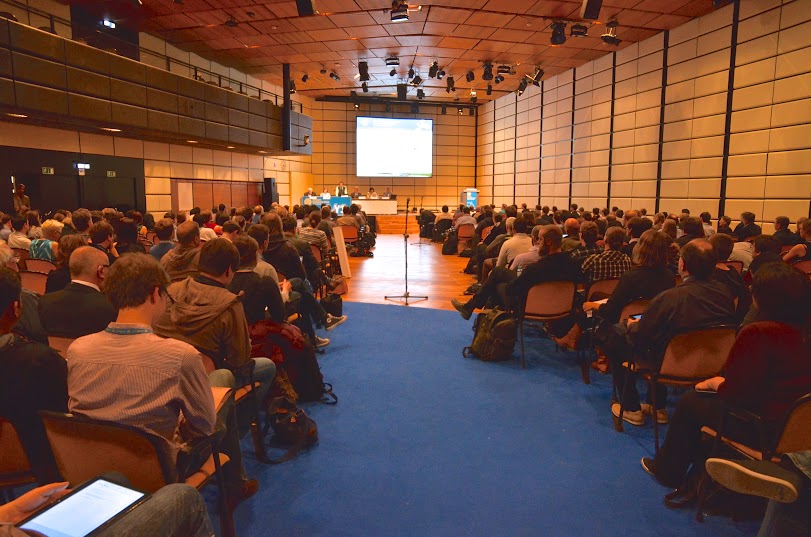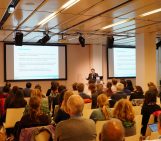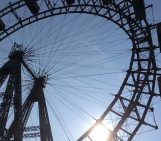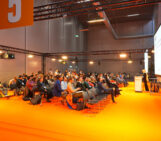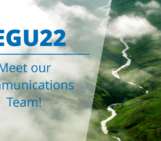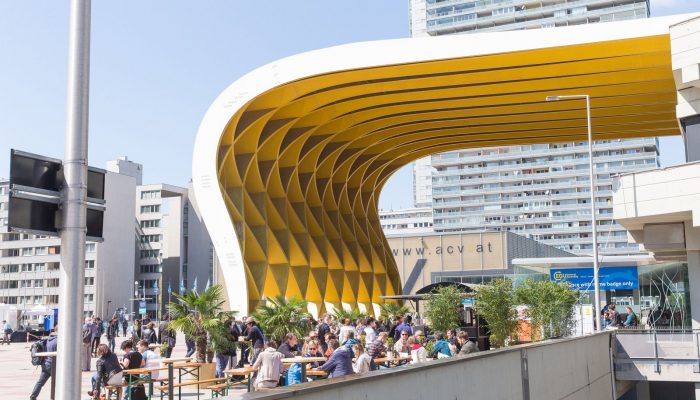
We’re halfway through the General Assembly already! Once again there is lots on offer at EGU 2017 and this is just a taster – be sure to complement this information with EGU Today, the daily newsletter of the General Assembly, available both in paper and for download here.
The day kicks off with an interdisciplinary Union-wide session: Vegetation-climate interactions across time scales (US1, 08:30–12:00 in E2, followed by posters from 13:30 to 15:00 in Hall X4). It will bring together palaeocologists, ecophysiologists, geoscientists and climate scientists to explore the different processes through which plants interact with the climate system across timescales. You can also follow the session on Twitter (#EGU17SSE) and catch up with the EGU 2017 webstream.
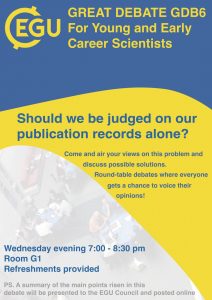 The second of our Great Debates is also on today. It is particularly gear towards Early Career Scientists (ECS). Head to room G1 from 19:00 to 20:30 to discuss, in a series of small group debates, whether ECS should be judged by their publication record? There will be free drinks provided to help lubricate the conversation. You can follow the discussion on Twitter with #EGU17GDB, and, #EGUecs.
The second of our Great Debates is also on today. It is particularly gear towards Early Career Scientists (ECS). Head to room G1 from 19:00 to 20:30 to discuss, in a series of small group debates, whether ECS should be judged by their publication record? There will be free drinks provided to help lubricate the conversation. You can follow the discussion on Twitter with #EGU17GDB, and, #EGUecs.
Another highlight of today’s events is the EGU Award Ceremony (US0). Come and celebrate the recipients of the 2017 awards and medals from 17:00 in room E1.
Another promising event set for today is the EGU Award Ceremony, where the achievements of many outstanding scientists will be recognised in an excellent evening event from 17:30–19:00 in Room E1. Here are some of the lectures being given by these award-winning scientists:
- The Future of Earth’s Oceans: consequences of subduction invasion in the Atlantic (ML6/TS: Arne Richter Award for Outstanding ECSs Lecture by João Duarte, 09:30–10:00 / Room D3)
- From Position-Specific Labeling to Environmental Fluxomics: Elucidating Biogeochemical Cycles from the Metabolic Perspective (ML32: BG Division Outstanding ECS Award Lecture by Michaela A. Dippold, 11:45-12:00 / Room 2.20)
- Advances in solar flare science through modeling of the magnetic field in the solar atmosphere (ML8/ST: Arne Richter Award for Outstanding ECSs Lecture by Julia K. Thalmann, 12:00-12:30 / Room L3)
- From Engineering Hydrology to Earth System Science: Milestones in the Transformation of Hydrologic Science (ML2/HS: Alfred Wegener Medal Lecture by Murugesu Sivapalan, 12:15-13:15 / Room E1)
The EGU Early Career Scientists’ Forum (12:15–13:15 in L2) is the best place to find out more about the Union and how to get involved. Because the EGU is a bottom up organisation, we are keen to hear your suggestions on how to make ECS related activities even better. There will be plenty of opportunities during the Forum for you to provide feedback. It’s over lunch, so you’ll find a buffet of sandwiches and soft drinks when you arrive too!
There are a host of interdisciplinary events taking place today. If you are interested in big data and machine learning in the geosciences head to Room L2 at 08:30 for orals, or poster hall X4 at 17:30 for further discussion later in day. While session IE3.1/BG9.58: Information extraction from satellite Earth observations using data-driven methods (13:30–15:00 / Room L2, Poster:17:30–19:00 / Hall X4), is also set to be thought-provoking. Check the conference programme, our EGU Today, for details of a further two events spanning the cryospheric, atmospheric and ocean sciences.
Now on to short courses! Today offers the opportunity to learn some tips for winning grant proposals with Open Science (SC74: 08:30–12:00 / Room -2.85). Don’t worry if you can’t make it today, it runs again tomorrow at the same time and place. Perhaps you’ve considered showcasing the fruits of your research in an informative science film, but are struggling to identify where you can find the funds to make the film happen. Then the workshop on finding funding for your science film is just the ticket (SC78:10:30–12:00 / Room 0.90). If instead you feel blogging might be the best way to make your work accessible to a broad audience, come along to the short course on the nuts & bolts of blogging with WordPress where you can pick up a tonne of tips to get you started. If you work in the field of natural hazards you can learn how unmanned aerial vehicles (UAVs) can be used for monitoring (SC53: 15:30-17:00 / Room -2.61). Writing your first paper can be daunting, so head to room N2 at 17:30 to develop successful strategies to design, develop and write a scientific paper (SC92:17:30–19:00 / Room N2)
And check out some of today’s stimulating scientific sessions:
- Geodiversity and Geoheritage (GM1.3/EOS19/SSS3.12: Orals: 08:30–12:00 / Room N1; Posters / 17:30–19:00 / Hall X2)
- How my water research made the news (HS1.10: PICOs / 13:30–15:00 / PICO spot 1)
- Historical Climatology (CL1.02: Orals 15:30 – 17:00 / Room 0.14; Posters: 17:30–19:00 / Hall X5)
- Learning from failed models and negative results (TS8.4/GD8.6/GM3.10: Posters only / 17:30–19:00 / Hall X2)
Finally, remember to take the opportunity to meet your division’s representatives in the day’s Meet EGU sessions and, if you’ve had enough of the formalities, head on over to GeoCinema, where you’ll find some great Earth science films, including the finalists of EGU’s Communicate Your Science Video Competition. Make sure to vote on your favourite entries by ‘liking’ the videos on the EGU YouTube channel.
Have an excellent day!

